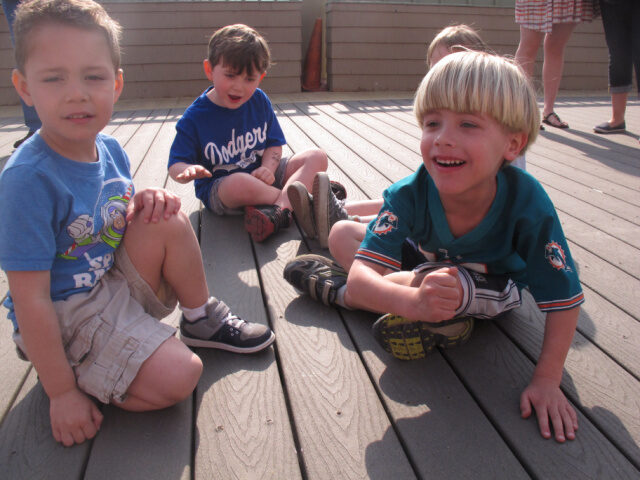After the government ordered lockdowns during the coronavirus pandemic — which sequestered Americans in their homes, shut down schools, caused mass business closures, and various mental health crises — children who were babies and toddlers are now “academically and developmentally behind,” the left-leaning New York Times reported on Monday.
The Times — which was pro-school shutdowns, and pro-masks for young children during the pandemic — interviewed more than two dozen teachers, pediatricians, and early childhood experts to conclude that the complete upending of society during the pandemic did, in fact, harm young children, leaving them “struggling,” moving forward. The experts cited in the report “depicted a generation less likely to have age-appropriate skills — to be able to hold a pencil, communicate their needs, identify shapes and letters, manage their emotions or solve problems with peers.”
“I definitely think children born then have had developmental challenges compared to prior years,” said Dr. Jaime Peterson, a pediatrician at Oregon Health and Science University, whose research is on kindergarten readiness. “We asked them to wear masks, not see adults, not play with kids. We really severed those interactions, and you don’t get that time back for kids.”
The Times noted that while the negative effects of the pandemic and school closures on older children are well-documented, the impacts on children who had not yet gone to school are “in some ways surprising.” Researchers The Times spoke with pointed out that young children, whose early years are most critical for brain development, have been affected by parental stress, less exposure to people, lower pre-school attendance, and more screen time that occurred during the pandemic.
Joel Ryan, who works with a network of Head Start and state preschool centers in Washington State, said the youngest children represent a “pandemic tsunami” headed for the education system in the United States. Ryan said he has seen an increase in speech delays and behavioral problems.
Brook Allen, in Martin, Tenn., who has taught kindergarten for 11 years, said she has several students for the first time this year who can barely speak, several who were not potty trained, and several who did not possess the motor skills to hold a pencil.
Michaela Frederick, a pre-K teacher for students with learning delays in Sharon, Tenn., told the publication that she does not see young children engaging in the imaginative play or seeking out other children in the way they used to.
“She’s had to replace small building materials in her classroom with big soft blocks because students’ fine motor skills weren’t developed enough to manipulate them,” the report reads.
St. Augustine, Florida, pre-school teacher Lissa O’Rourke said she noticed young children are having more difficulty regulating their emotions.
“It was knocking over chairs, it was throwing things, it was hitting their peers, hitting their teachers,” she said.
Heidi Tringali, a pediatric occupational therapist in Charlotte, N.C., told the publication she and her colleagues are seeing more children with “visual problems, core strength, social skills, attention — all the deficits.”
“We really see the difference in them not being out playing,” she said.
The Times ended its report by stating that while “it’s too early to know whether young children will experience long-term effects from the pandemic…researchers say there are reasons to be optimistic.”
“It is absolutely possible to catch up, if we catch things early,” said Dr. Dani Dumitriu, a pediatrician and neuroscientist at Columbia and chair of the study on pandemic newborns. “There is nothing deterministic about a brain at six months.”
Katherine Hamilton is a political reporter for Breitbart News. You can follow her on X @thekat_hamilton.

COMMENTS
Please let us know if you're having issues with commenting.